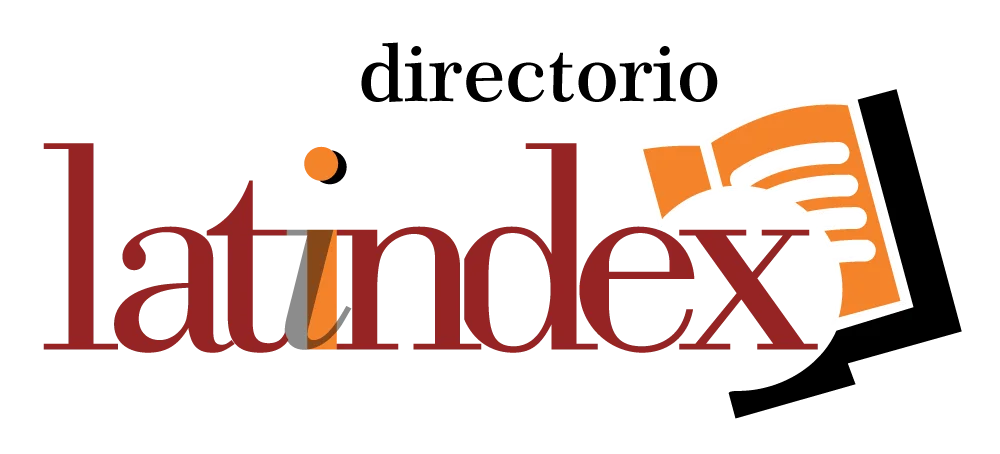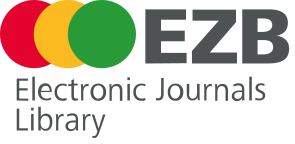Giftedness and double exceptionality: identification, support and development
DOI:
https://doi.org/10.56294/neuro2024146Keywords:
Giftedness, Twice Exceptionality, High Abilities, Asynchronous Development, Early Identification, NeurodiversityAbstract
Introduction: intellectual giftedness and twice exceptionality (2e) are complex phenomena that require a deep understanding for their effective identification and support. Giftedness is defined by exceptional cognitive abilities, creativity, and task commitment, while twice exceptionality combines these high abilities with disabilities such as ADHD, ASD, or dyslexia. These conditions present unique challenges due to asynchronous development, where strengths can mask difficulties, or vice versa, complicating their diagnosis and support.
Development: Iidentifying giftedness and 2e requires multidimensional approaches, including IQ testing, qualitative assessments, and behavioral observation. Current theoretical models, such as those of Renzulli and Gagné, highlight the importance of cognitive, emotional, and environmental factors. Gifted individuals display characteristics such as high verbal ability, critical thinking, and emotional sensitivity, while 2e individuals present uneven profiles with "peaks" of ability and "valleys" of difficulty. Diagnostic challenges include mutual masking of exceptionalities and a lack of teacher training. Educational strategies must be differentiated, combining academic acceleration, curricular enrichment, and psychological support to address perfectionism, anxiety, and social skills. For 2e children, a strengths-based approach, individualized adaptations, and development of executive functions are crucial.
Conclusions: giftedness and twice exceptionality require a holistic approach that integrates early identification, personalized interventions, and collaboration between educators, families, and professionals. Adequate support enables these individuals to reach their potential and contribute meaningfully to society.
References
1. Navarro, José I. "Superdotación Intelectual." Faisca 12 (2005): 5-15. https://sid-inico.usal.es/idocs/F8/ART21131/montero.pdf
2. Kuznetsova E, Liashenko A, Zhozhikashvili N and Arsalidou M (2024) Giftedness identification and cognitive, physiological and psychological characteristics of gifted children: a systematic review. Front. Psychol. 15:1411981. doi: 10.3389/fpsyg.2024.1411981
3. Gómez Arizaga, MP, Conejeros-Solar, ML, Sandoval Rodríguez, K, Armijo Solís, S. Dupla excepcionalidade: análise exploratória das experiências e autoimagem em estudantes chilenos. Revista de Psicología (PUCP). 2016, 34(1), 5-37. https://doi.org/10.18800/psico.201601.001
4. Tadevosyan, E., Harutyunyan, A., & Harutyunyan, Z. (2025). The features and challenges of twice exceptionality phenomenon in the contemporary education system. Armenian Journal of Special Education, 9(1), 6–18. https://doi.org/10.24234/se.v9i1.42
5. Child Mind Institute. Twice-Exceptional Kids: Both Gifted and Challenged. https://childmind.org/article/twice-exceptional-kids-both-gifted-and-challenged/
6. Cervantes, Celia Josefina Rodríguez, et al. "Funciones Ejecutivas en alta capacidad intelectual (ACI), trastorno por déficit de atención (TDAH), doble excepcionalidad (ACI-TDAH) e inteligencia promedio." Electronic Journal of Research in Education Psychology 20.58 (2022): 495-516. https://ojs.ual.es/ojs/index.php/EJREP/article/view/4188
7. Colorado Department of Education. Twice Exceptional Learners. https://www.cde.state.co.us/cdesped/dyslexia-twiceexceptional
8. Holmgren A-C, Backman Y, Gardelli V, Gyllefjord Å. On Being Twice Exceptional in Sweden—An Interview-Based Case Study about the Educational Situation for a Gifted Student Diagnosed with ADHD. Education Sciences. 2023; 13(11):1120. https://doi.org/10.3390/educsci13111120
9. Misdiagnosis and Dual Diagnoses of Gifted Children and Adults: ADHD, bipolar, OCD,Asperger’s, depression, and other disorders. 2004 Scottsdale: Great Potential Press. http://www.sengifted.org/archives/articles/misdiagnosis-and-dual-diagnosis-of-gifted-children
10. Josephson, Janet, Charlton Wolfgang, and Rich Mehrenberg. "Strategies for Supporting Students Who Are Twice-Exceptional." Journal of Special Education Apprenticeship 7.2 (2018): n2. https://journals.sagepub.com/doi/abs/10.1177/10534512030380030101
11. Küry L, Fischer C. The Self-Perceptions of Twice-Exceptional Children: A Systematic Review. Education Sciences. 2025; 15(1):44. https://doi.org/10.3390/educsci15010044
12. Manzone, Jessica A., and Sam Young. "Examining Twice Exceptionality From Various Perspectives: What We Wish We Knew." Autism, Neurodiversity, and Equity in Professional Preparation Programs, edited by Shanna Jamanis and Dawn Vogler-Elias, IGI Global Scientific Publishing, 2024, pp. 203-225. https://doi.org/10.4018/979-8-3693-0163-0.ch009
13. Matthews MS, Jolly JL. Why Hasn't the Gifted Label Caught up with Science? J Intell. 2022 Oct 12;10(4):84. doi: 10.3390/jintelligence10040084. https://pmc.ncbi.nlm.nih.gov/articles/PMC9624309/
14. Gallardo Rodríguez, M. "La importancia de la creatividad en alumnos con altas capacidades." Universidad de Valladolid, 2020. https://uvadoc.uva.es/bitstream/handle/10324/45596/TFG-L2778.pdf
15. de Acedo Baquedano, María Teresa Sanz, and María Victoria Lumbreras Bea. "Identificación del alumnado de altas capacidades y estimulación de su creatividad como respuesta psicoeducativa." Cuadernos del Marqués de San Adrián: revista de humanidades 11 (2019): 153-175. https://qinnova.uned.es/archivos_publicos/qweb_paginas/18038/cuadernos11articulo8.pdf
16. Álvarez Cárdenas, Fernanda, et al. "Altas capacidades y TDAH: una doble excepcionalidad poco abordada." 2019. https://dehesa.unex.es/handle/10662/14357
17. Silverman, Linda Kreger. "The construct of asynchronous development." Charting a new course in gifted education. Routledge, 2017. 36-58. https://www.taylorfrancis.com/chapters/edit/10.4324/9780203765098-4/construct-asynchronous-development-linda-kreger-silverman
18. Colorado Department of Education. Twice-Exceptional (2e). https://www.cde.state.co.us/gt/twice-exceptional
19. Zamora Víctor, Rosemari. "Los procesos de alto potencial: alta dotación, talentos y creatividad en la educación primaria." (2025). https://repositorio.una.ac.cr/items/0834e293-6e9a-419c-99f5-538bfbabd0c8
20. Johnsen, Susan K., and Krystal K. Goree. "Teaching gifted students through independent study." Methods and materials for teaching the gifted. Routledge, 2021. 445-478. https://www.taylorfrancis.com/chapters/edit/10.4324/9781003236603-18/teaching-gifted-students-independent-study-susan-johnsen-krystal-goree
21. Altas capacidades y tdah: una doble excepcionalidad poco abordada. (2019). Revista INFAD De Psicología. International Journal of Developmental and Educational Psychology., 5(1), 417-428. https://doi.org/10.17060/ijodaep.2019.n1.v5.1621
22. Wrightslaw Special Education Law and Advocacy. A Guidebook for Twice Exceptional Students. https://www.wrightslaw.com/info/2e.guidebook.pdf
23. Reche Morales GM. Altas capacidades intelectuales: conceptualización, identificación, evaluación y respuesta educativa. https://www.carm.es/edu/pub/19638_2019/pub_contenido_07_identificacion-y-evaluacion-de-las-altas-capacidades.html
24. The Beneventi School. Qualitative Assessment – Tessellations. https://tessellations.school/qualitative-assessment/
25. Renzulli Learning. Creativity Assessment. https://renzullilearning.com/en/Menus/32-creativity-assessment
26. Vilarinho-Rezende D ; de Souza Fleith D; Lima Soriano Alencar EM. Desafíos en el diagnóstico de doble excepcionalidad: un estudio de caso. Revista de Psicología, 2016, 34(1):61-84. https://dialnet.unirioja.es/servlet/articulo?codigo=5306150
27. King S. The Education Context for Twice-Exceptional Students: An Overview of Issues in Special and Gifted Education. Neurobiology of Learning and MemoryVolume, 2022, 193:107659. https://www.researchgate.net/publication/361912832_The_education_context_for_twice-exceptional_students_An_overview_of_issues_in_special_and_gifted_education
28. Intervención psicoeducativa en niños superdotados. International Journal of Developmental and Educational Psychology. 2008, 2(1):43-51. https://www.redalyc.org/pdf/3498/349832317004.pdf
29. Lo CO, Porath M. Paradigm Shifts in Gifted Education: An Examination Vis-à-Vis Its Historical Situatedness and Pedagogical Sensibilities. Gift Child Q. 2017 Oct;61(4):343-360. doi: 10.1177/0016986217722840. https://pmc.ncbi.nlm.nih.gov/articles/PMC6234478/.
Published
Issue
Section
License
Copyright (c) 2024 Jose Ignacio Robaina Castillo (Author)

This work is licensed under a Creative Commons Attribution 4.0 International License.
The article is distributed under the Creative Commons Attribution 4.0 License. Unless otherwise stated, associated published material is distributed under the same licence.






